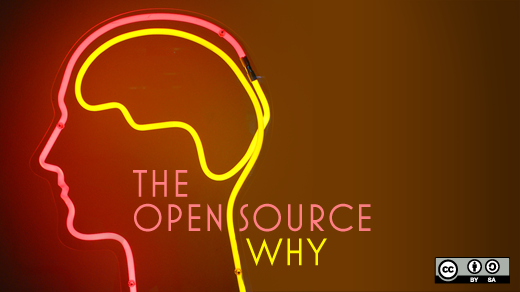Lulu.com helped define modern publish-on-demand services. In my mind, they did define them; I remember printing my first photobook and sending it to Lulu to be sent back, spiral-bound. I was amazed. I had essentially put together a small markup language (DSL, or Domain Specific Language, even), processed it through a Scheme script, and spit out LaTeX that produced reasonably pretty pages that could be converted to PDF and submitted for publication. I think I bought two copies.
 As it turns out, there are other people who use the service for much, much more. Authors are successfully self-publishing their works at a significantly greater per-unit profit through Lulu than through other online services. Families work together to produce comic books of their children's drawings and stories. Calendars, photobooks, post cards... you name it, they print it, on demand. I still dream of completing my text on parallel programming for the Arduino and offering it print-on-demand through Lulu, in trade paperback format.
As it turns out, there are other people who use the service for much, much more. Authors are successfully self-publishing their works at a significantly greater per-unit profit through Lulu than through other online services. Families work together to produce comic books of their children's drawings and stories. Calendars, photobooks, post cards... you name it, they print it, on demand. I still dream of completing my text on parallel programming for the Arduino and offering it print-on-demand through Lulu, in trade paperback format.
Bob Young co-founded the Linux Journal in 1994, was co-founder and CEO of Red Hat from 1993 through 2000, and went on to found Lulu.com, where he remains the founder and chairman today. I had the opportunity to ask Bob for a few minutes of his time to answer some questions as part of our leadup to All Things Open 2014. I wish I was going to be in Raleigh to take part come October 22-23, but instead I'm going to be out at the Society of Women Engineers national conference. Otherwise, I'd be there. What follows is our asynchronous email-interview to help set the stage for this upcoming conference.

You have a long relationship with technology and open source. What role do open technologies play at Lulu, and how does Lulu give back to the community?
I come from a long line of entrepreneurial businessmen. So it was simply understood in our house that in a free-market democracy the citizen and the consumer were the same person. Which means that if you can build a new business that offers better products or services than those previously available, you are making your customers' world a better place. Those customers/citizens then reward you and your company directly for doing so by buying your product or service over those of the established suppliers.
So, while Lulu does support a wide range of philanthropic projects from education to health and welfare, the primary contribution Lulu makes to our society is by offering an innovative open publishing platform, enabling authors and content owners to profit from their work in ways the traditional publishing industry simply is not set up to do.
Are transparency, collaboration, and any other 'open' practices prevalent in the Lulu workplace? What do those practices look like on a day-to-day basis throughout the organization?
We offer what we refer to as an Open Publishing Platform. Traditional publishers are all trying to find the next Harry Potter, i.e. the next book that will sell millions of copies. They don’t want to know about books that will only sell a thousand copies, no matter how valuable that book might be to those thousand readers. Lulu’s open publishing platform enables authors to publish their books themselves and to make a profit on the first sale of the first copy.
Which means we are not the publisher deciding if your book is good enough or interesting enough or targeted at a large enough market to be worthy of publishing, you are. This has resulted in Lulu enabling literally millions of authors to publish works that would otherwise never have seen the light of day. In turn this gives consumers a much broader choice of content than the traditional publishing industry is set up to offer.
The open source way is, in its way, disruptive. Do you see Lulu playing a disruptive role in the publishing industry through the aegis of open content? Or, is my question wrong, and you see Lulu transforming the publishing industry in even more radical ways? What might that look like, from your perspective?
We take a certain amount of pride at Lulu for having invented the self-publishing business, so in that sense we have already been very disruptive. There is now a "self-publishing industry." But like all businesses, our customers don’t really care about what we innovated yesterday, they are looking to us to deliver the next tool or feature that will make their world an even better place. I could tell you what our next big breakthrough is going to be but then you’d have to sign an NDA and this wouldn’t make for much of an interview. More seriously, like all aspiring innovators we actually don’t know, in advance, which of our innovations are going to seen as making our customers’ world a better place and hence be wildly popular, and which will fall flat.
Could you talk more about the "My Comic Book" product, and more generally, Lulujr? As the father of a 5-year-old (with whom I've been writing down the stories to go with his own comics) and a 1-year-old (who eats books), I found this to be an absolutely wonderful addition to Lulu’s offerings.
Having invented self-publishing and patting ourselves on the back, we spent some time thinking about why the world should care about our brilliant innovation, and we came to the conclusion that they shouldn’t care. Using the reach of the Internet combined with the new digital printing technologies, we have built a remarkable set of features. But the world doesn’t need more technology or features. That isn’t what the world cares about. As citizens of the world, we all care about making the world a better place. So the goal is to achieve world peace, or protect the environment for future generations, or educate the next generation of humans better than we’ve been educated.
My Comic Book, and other new initiatives from Lulu, are a result of our shift in focus from just delivering more open-publishing tools to using those tools to make the world a better place by offering products and services that are more directly aimed at helping educate our world to a higher standard. I recognize that this is a big vision for a comic book product, but there is no point thinking small.
I can see that Lulu is in the eBook distribution scrum with some pretty big players. That said, the profit per-sale is better than any of its competitors. What opportunities do you see for openness and disruption in the ebookstore space?
Oddly enough, I don’t think there is much more opportunity for either openness or disruptions in eBooks. Simply because there is so much openness and disruption already occurring it is hard to imagine more. Of course the dust has not settled in this space, and I expect the eBook business will consolodate as consumers begin to chose the services they prefer.
What open technologies could you never live without? And, do you have an opensource hero?
I’ve always thought about open source in a much bigger way than just software. To the point where I did not think of the open source software business as being particularly innovative. It was only the binary-only proprietary software industry that existed in 1992, that remained in the dark ages, operating as a feudal system. Lawyers across the planet shared all the language and arguments that make up our body of law and precedent, transportation companies shared the publicly available transportation networks to serve their customers, clothing designers and manufacturers did not patent their latest fashions instead they all shared the vast history of clothing design to create their new products to serve their customers.
Only the software industry worked under a system where the customer was not able or allowed by his vendor to make changes to the software he had paid for. The vendor imposed restrictive software licenses, and the vendor only delivered the binaries, the ones and zeros their computer used, not the source code the customer needed. This resulted in the software vendor being in control of the vendor-customer relationship in a way that resembled a feudal lord’s control over his illiterate subjects.
As a result my open source heros are those thinkers and leaders through history who have advanced the notions of democracy and individual rights, from Jefferson, to Adam Smith, to Pericles.
Are there open projects at Lulu that an engaged student looking for projects might engage with, or that community members passionate about books and publishing might contribute to?
Yes and no. Not being the publisher, Lulu has no way of knowing or evaluating what projects are valuable and which are not, so we don’t sponsor or host any specific projects. On the other hand there are thousands of such projects occurring at universities and other organizations around the world to study specific fields or educate on specific topics that are using Lulu as their publishing platform.
See the full series of All Things Open 2014 speaker interviews.







1 Comment